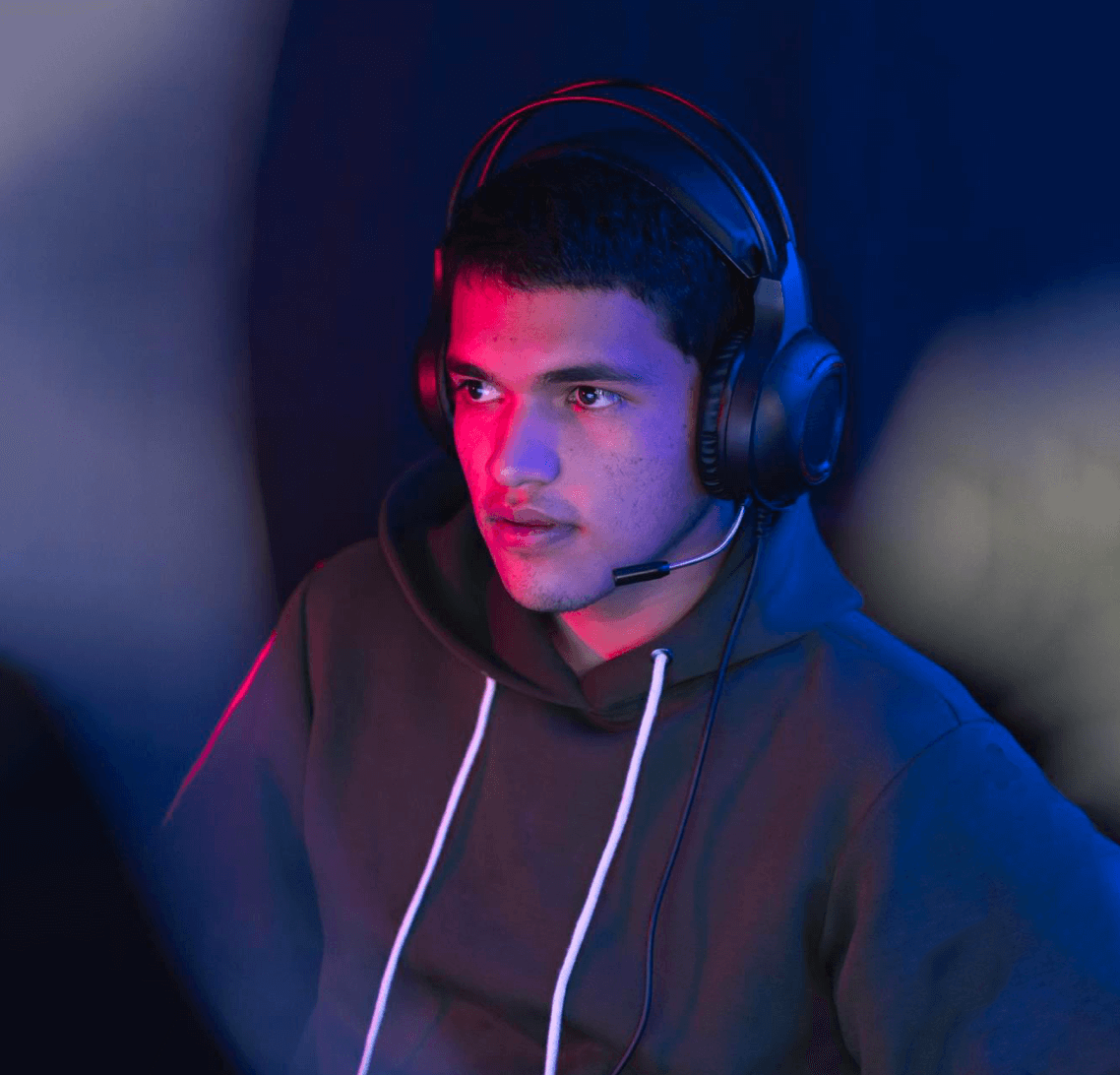Here’s a question for you: How much time do you spend online with your children? What if I told you some new research carried out by Roblox and Internet Matters has found some teenagers actively want to spend time online with their mums and dads?

It doesn’t quite sound right does it? It certainly goes against stereotypical teenage behaviour, but this is one of the key findings from the Demystifying Teens Online Interactions report.
Demystifying Teens Online Interactions: Fascinating findings
Discovering that teens want to engage more with their parents online was just one finding. In addition to this, youngsters felt confident making online friendships and said they found lack of authenticity to be a turn-off.
While many of the results were surprisingly positive, the report also found that teenage gamers struggle to self-regulate and admit they could be better at putting their phone away. Some also said they feel disconnected with the offline world.
Report background
Okay, okay, so you’ve probably heard of Roblox but you’re probably wondering how authoritative this report is. For starters, Internet Matters is an online safety specialist funded by the tech industry.
The report is based on a piece of qualitative research carried out with 19 youngsters aged between 13 and 16. The participants took part in a three-day online exercise organised by research company YouthSight that involved online discussions and completing tasks.
In total, 10 girls and 9 boys took part. Participants were from a mix ethnicities and rural and urban locations.
Other interesting points
There are some other very interesting points to have come out from this piece of research. Youngsters will, after a period of time, consider an online friend to be a real friend, although the key is to have shared interests. Youngsters are also wary of people who contact them online and who seem in authentic.
Despite what you might think, teens are concerned about being judged. While many enjoy creating content for online platforms, they’re cautious of sharing it beyond their group of online friends for fear of judgement.
The pandemic also had a major impact on how youngsters used the internet. First of all, screen time rocketed up because of time spent attending remote lessons and also youngsters using online methods to keep in touch with friends. That said, many admitted they reached a saturation point during the lockdowns and found time spent online monotonous during the pandemic.
Readjusted my approach to screen time
I found this research confirmed some views expressed in Richard Culatta’s excellent book Digital For Good. There was a time, not that long ago, when parents were told that youngsters should have half an hour a day of screen time, full stop. This took no account of whether they were being creative and developing their own animations on Scratch or their own worlds in Minecraft or being sociable by gaming with friends or simply watching unboxing videos on YouTube.
Culatta drew a distinction between the different varieties of screen time and argued us parents need to equip our children with certain skills so they can make the most of the online world. It changed my thinking and if I can hear my kids laughing, chatting and having fun while gaming, I often leave them to it whereas once upon a time I would have broken the game up after 30 minutes or so.
What the Roblox and Internet Matters research shows, rather like Culatta’s book, is that the online world can be a positive place for youngsters. It’s fascinating to note that youngsters want us parents to share this space with them. The fact some teens struggle to regulate their screen time shows they need adult guidance.
More information
You can read the report by following this link. I strongly recommend you do as it is full of interesting insights into how teens behave online and how they view the online world.
The partnership between Roblox and Internet Matters is a part of Roblox’s Digital Civility Initiative which aims to help youngsters, parents and carers have positive online experiences. Further research is planned so watch this space, I’m sure there will be lots of valuable insights to come.







6 thoughts on “Demystifying Teens Online Interactions”
Fascinating report.
I’d never have though people like the Roblox community would be involved in something like this.
I do play games online with my kids, and your exactly right, if they create an online world in something like Roblox or Minecraft my middle child, a tween, is reluctant to share her creation with others.
Great read John.
My kids will sometimes ask if I want to join them playing and I always will as it’s an invitation to play and nice to be included. I’m not sure all parents think the same way, hence why this research is fascinating (to me anyway!).
Thankfully Joshua isn’t at an age where he is using the internet a great deal. When he does use it, he’s either on Google Maps or Google Earth. I monitor literally everything he does on the device. There will of course become a time where his activities will broaden and in turn, I’ll be keeping much more of a watch on what he’s doing.
Great work keeping such a close eye on what Joshua is doing. I hope you can keep it up as he gets older. He’ll appreciate it in the long run.
I’ve been looking into this recently. The future of the internet is a very alien place. Alice and Luca aren’t old enough but they soon will be. As a father I have to be active and understand their online, digital life. We are very fortunate to know of a life before the internet, we must understand our children don’t.
Roblox are certainly taking children’s welfare seriously – https://en.help.roblox.com/hc/en-us/articles/360000375686-Account-Restrictions – and have built some account restrictions in to the platform.
One of the biggest challenges is how other kids play online because this directly impacts on your offspring. It’s great having rules at home, then you find out their friends can do carte blanche online, which is deeply unhelpful.